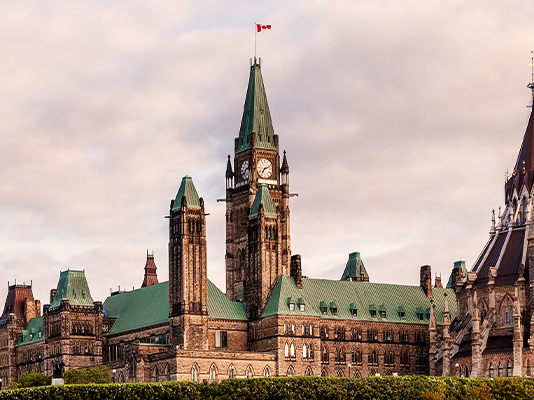By Sun Life Global Investments Tax & Estate Planning Team
Highlights
1. Measures concerning individuals
Extension of the Residential Property Flipping Rule to Assignment Sales
Budget 2022 proposed the Residential Property Flipping Rule, a new deeming rule to ensure profits from flipping residential real estate are always subject to full taxation. Starting on January 1, 2023, profits arising from dispositions of residential property (including a rental property) that was owned for less than 12 months would be deemed to be business income, subject to some exceptions.
The 2022 Fall Economic Statement proposes to extend this new deeming rule to profits arising from the disposition of the rights to purchase a residential property via an assignment sale. Profits arising from an assignment sale would be deemed to be business income if the rights to purchase a property were assigned after having been owned for less than 12 months.
The Residential Property Flipping Rule, including the extension for assignment sales, would apply in respect of transactions occurring on or after January 1, 2023.
Automatic Advance for the Canada Workers Benefit
The Canada Workers Benefit (CWB) is a refundable tax credit that supplements the earnings of low- and modest-income workers. An individual claims the CWB when completing their tax return, but filers are automatically assessed by the Canada Revenue Agency (CRA) for eligibility if the CWB is not claimed. An advance payment option is available through which eligible individuals may apply to receive up to half of their anticipated CWB entitlement for a taxation year through up to four advance payments. Despite recent efforts to raise awareness of this option, the provision is little used.
To provide CWB beneficiaries with more timely support throughout the year, the 2022 Fall Economic Statement proposes to automatically provide individuals who received the CWB for the previous taxation year an entitlement for the current taxation year through quarterly advance payments, so long as their income tax return for the previous year is received and assessed by the CRA prior to November 1 of the current year.
Advance payments would be issued automatically starting in July 2023 for the 2023 taxation year.
Eliminating Interest on Federal Student and Apprentice Loans
To support students during COVID-19, the government waived interest charges on student loans for two years. This support currently expires on March 31, 2023. The 2022 Fall Economic Statement proposes to make all Canada Student Loans and Canada Apprentice Loans permanently interest-free, including those currently being repaid, beginning on April 1, 2023.
2. Measures concerning businesses
A Tax on Share Buybacks
A share buyback occurs when a corporation buys its own stock back from existing shareholders. While buying back shares is one legitimate way that corporations can return value to their shareholders, it can also divert corporate resources away from making investments in their workers and businesses in Canada.
The 2022 Fall Economic Statement announced the government’s intention to introduce a corporate-level 2 per cent tax that would apply on the net value of all types of share buybacks by public corporations in Canada, similar to a recent measure introduced in the United States. The details of this new tax will be announced in Budget 2023, and the tax would come into force on January 1, 2024.
Investment Tax Credit for Clean Technologies
The 2022 Fall Economic Statement proposes to introduce a refundable Clean Technology Investment Tax Credit equal to 30 per cent of the capital cost of eligible equipment.
3. Other measures
Following the 2022 Fall Economic Statement, the government will table legislation in Parliament to:
- Create the new Tax-Free First Home Savings Account, which would give prospective first-time home buyers the ability to save up to $40,000, tax-free. Like an RRSP, contributions would be tax-deductible, and withdrawals to purchase a first home—including investment income—would be non-taxable, like a TFSA. Tax-free in; tax-free out. The government expects that Canadians will be able to open and begin contributing to an account in mid-2023.
- Double the First-Time Home Buyers' Tax Credit, which would provide up to $1,500 in direct support to home buyers, starting in 2022, to help offset increasing closing costs involved in buying a home.
- Introduce a new, refundable Multigenerational Home Renovation Tax Credit, which would provide up to $7,500 in support for constructing a secondary suite for a family member who is a senior or an adult with a disability, starting January 1, 2023.
The Alternative Minimum Tax (AMT) is intended to ensure that high-income Canadians cannot disproportionately lower their tax bill through advantages in the tax system, but it has not been substantially reviewed since its introduction in 1986. In Budget 2022, the government committed to examining a new minimum tax regime to ensure that all wealthy Canadians pay their fair share of tax. The 2022 Fall Economic Statement reaffirms this intent, and a detailed proposal and path for implementation will be released in Budget 2023.
For more information
To find out more about the 2022 Federal Fall Economic Statement, visit:
https://www.budget.gc.ca/fes-eea/2022/home-accueil-en.html

